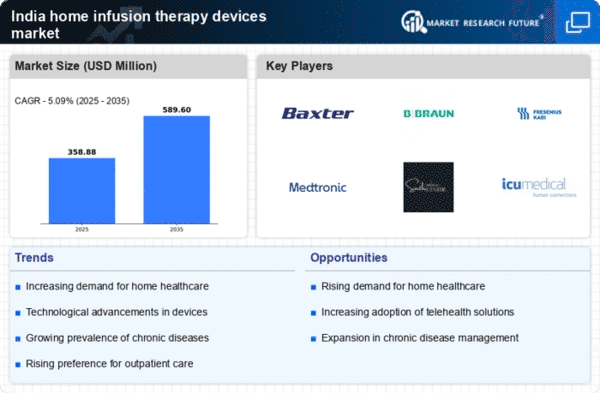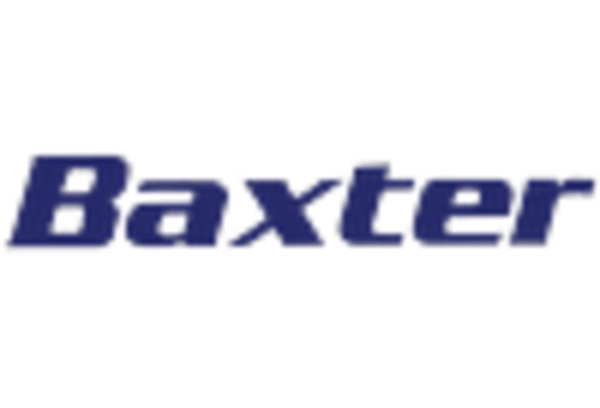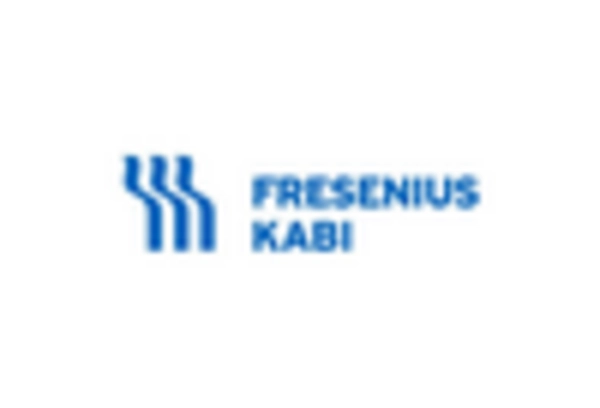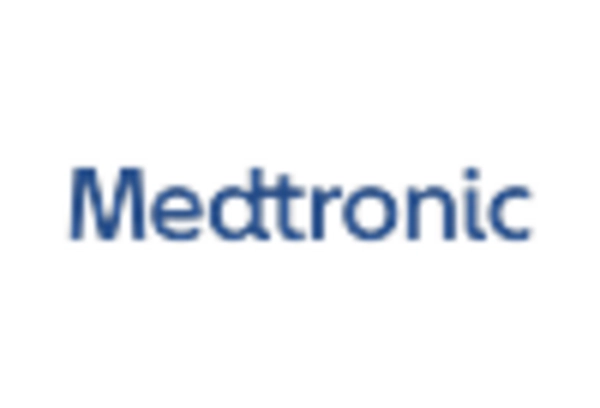Growing Aging Population
India's demographic shift towards an aging population is significantly influencing the home infusion-therapy-devices market. By 2025, it is projected that the elderly population will exceed 140 million, leading to an increased demand for healthcare services tailored to older adults. Many elderly patients require long-term infusion therapies for various health conditions, making home infusion devices essential for their care. The convenience and accessibility of home-based therapies can improve the quality of life for these individuals, allowing them to receive treatment in a familiar environment. As the healthcare system adapts to cater to this demographic, the home infusion-therapy-devices market is poised for substantial growth.
Rising Prevalence of Chronic Diseases
The increasing incidence of chronic diseases in India is a primary driver for the home infusion-therapy-devices market. Conditions such as diabetes, cancer, and cardiovascular diseases necessitate ongoing treatment, often requiring infusion therapies. According to recent health statistics, chronic diseases account for approximately 60% of all deaths in India, highlighting the urgent need for effective home care solutions. This trend is likely to propel the demand for home infusion devices, as patients seek convenient and effective treatment options within their homes. The home infusion-therapy-devices market is expected to expand significantly as healthcare providers and patients recognize the benefits of home-based therapies, which can enhance patient comfort and reduce hospital visits.
Technological Innovations in Infusion Devices
Technological advancements in infusion devices are transforming the home infusion-therapy-devices market. Innovations such as smart infusion pumps, which offer enhanced accuracy and monitoring capabilities, are becoming increasingly prevalent. These devices can provide real-time data to healthcare providers, ensuring better patient management and safety. The integration of mobile applications for monitoring and managing infusion therapies is also gaining traction, allowing patients and caregivers to track treatment progress easily. As these technologies become more accessible and affordable, the home infusion-therapy-devices market is likely to experience a surge in adoption, driven by both healthcare professionals and patients seeking improved treatment outcomes.
Supportive Government Policies and Initiatives
Government policies in India are increasingly supportive of home healthcare services, which is beneficial for the home infusion-therapy-devices market. Initiatives aimed at enhancing healthcare access and affordability are encouraging the adoption of home-based therapies. The National Health Policy emphasizes the importance of providing comprehensive healthcare services, including home care, to improve patient outcomes. Additionally, regulatory frameworks are being established to ensure the safety and efficacy of home infusion devices. As these policies take shape, they are likely to foster a conducive environment for the growth of the home infusion-therapy-devices market, enabling more patients to benefit from these essential therapies.
Increased Focus on Cost-Effective Healthcare Solutions
The rising cost of healthcare in India has led to a growing emphasis on cost-effective treatment options, which is positively impacting the home infusion-therapy-devices market. Home infusion therapies can significantly reduce hospital stays and associated costs, making them an attractive alternative for both patients and healthcare providers. With the Indian government promoting initiatives aimed at reducing healthcare expenses, the demand for home-based therapies is expected to rise. This shift towards more economical healthcare solutions aligns with the broader trend of patient-centered care, where patients are empowered to manage their health more effectively at home, further driving the home infusion-therapy-devices market.
















